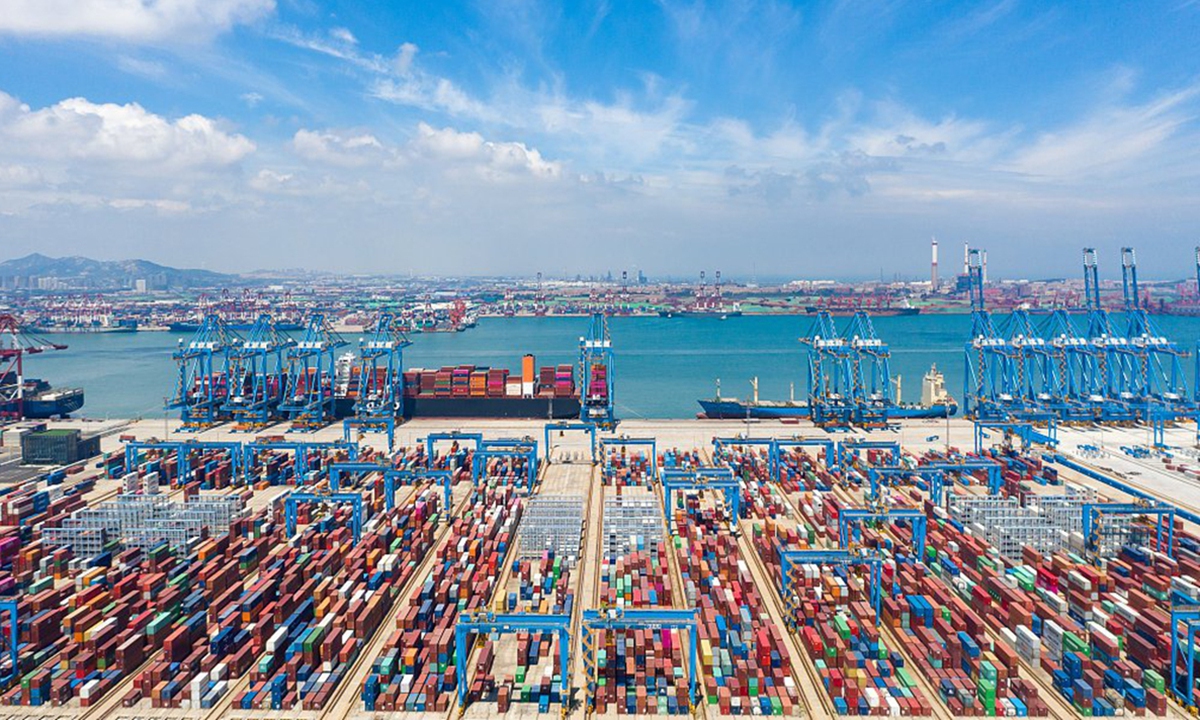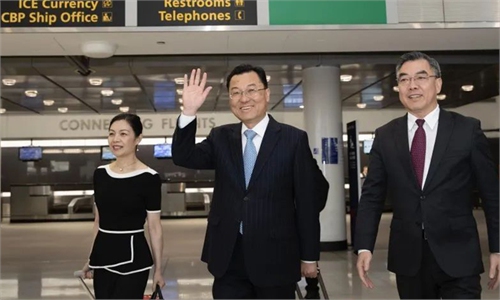
China trade economy File photo: VCG
Despite the drastic changes in the external environment due to the sharp rise in global geopolitical risks and the growing major power rivalry, Chinese companies are still showing strong interest in overseas investment. This requires not only a focus on execution, but also support from the government as to how to maintain record enthusiasm.
According to a report released by Singapore-based United Overseas Bank (China) Ltd on Tuesday, about 92 percent of Chinese companies surveyed plan to expand overseas over the next three years, with 42 percent planning to invest in Southeast Asia. The finding was based on a survey conducted on 588 top executives or decision-makers of Chinese mainland companies with an annual sales revenue of more than 100 million yuan ($14.2 million).
The results are basically in line with the trend over the past year. In another report released in 2022 by global consultancy Accenture, 95 percent of the surveyed Chinese companies believed their overseas businesses would see a compound growth of more than 5 percent in the next three years, and 52 percent of them anticipated that of over 20 percent.
Such enthusiasm among Chinese companies in overseas expansion, which reflects the vitality of Chinese entrepreneurship, is commendable and deserves support from the government.
After decades of development, a number of factors have contributed to the need for companies to go global. The Chinese government has already put forward the Belt and Road Initiative, as well as various policies, such as pilot free trade zones, to support companies to explore business and investment opportunities in overseas markets, laying a solid foundation for Chinese companies to expand abroad.
Moreover, the rapid development of digital and manufacturing industries has also offered companies confidence in exploring new development routes overseas. Add to this, competition in the domestic market has become increasingly fierce.
However, it is worth noting that the road of Chinese companies expanding overseas is not an easy one, especially in recent years. Ever since the US viewed China as its biggest strategic competitor and imposed high-tech sanctions, financial containment and trade tariffs, among others, to contain China's development, Chinese companies have also been facing growing geopolitical uncertainties. They also face Western smearing in their international expansion, as the political risks in overseas environment have already outweighed the complexity of specific business expansion as reflected by many cases.
In the G7 summit in Hiroshima, Japan, the group's economic security approach has been widely considered as targeting China, which observers believe could lead to more government scrutiny from the G7 nations over investments from China in the future.
As a result, a major challenge for Chinese companies going global is that some major industrial countries have started to rebuild their supply and industrial chains in pursuit of "de-risking" and "decoupling" from China. In response, Chinese companies need to be more proactive in their efforts to extend industrial and supply chains, while ensuring the stability of current ones.
However, while the US has set up a lot of obstacles for Chinese companies' overseas development both in the US and in countries closely aligned to Washington, that doesn't mean Chinese companies have to step back and give up overseas expansion. Whether for the companies themselves or China's high-standard opening-up, overseas expansion is of great significance. Since going global is a basic activity of economic exchange and development, how can high-level openness be achieved if companies are being held back from communicating with external markets?
Amid the current global economic downturn, some countries are pursuing anti-globalization policies so as to ease their own domestic pressure. But it is exactly under such circumstances that China needs to stand up to the US' containment and carve out its own path despite various economic repression and restrictions, so as to compete with the US in global markets.
This is also why the government needs to support Chinese companies' overseas expansion and offer relevant assistance if necessary. We believe that China has the strength, advantages and courage to break through the US containment of Chinese manufacturing, and will occupy a favorable position in international competition to contribute to the establishment of a new international economic order.



